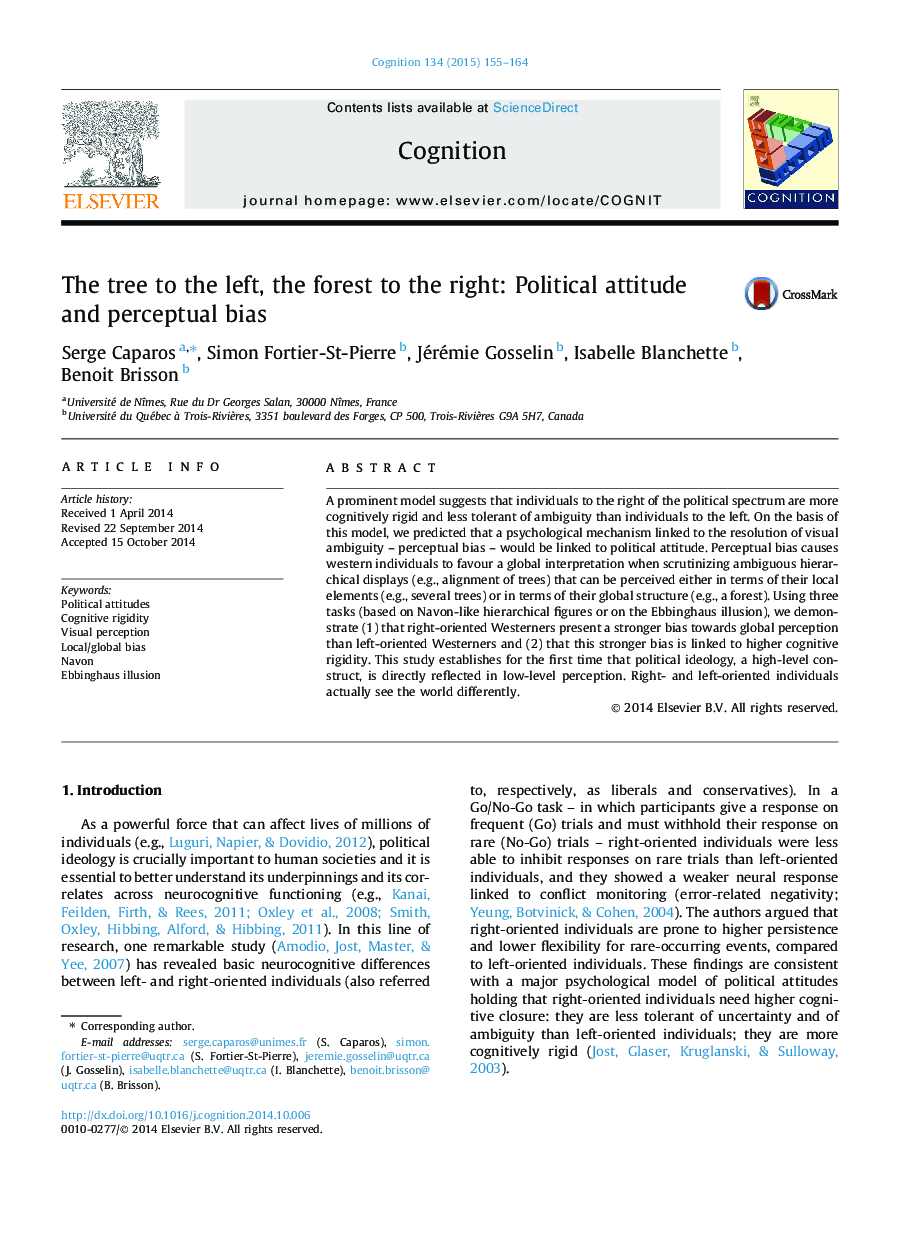| Article ID | Journal | Published Year | Pages | File Type |
|---|---|---|---|---|
| 7287589 | Cognition | 2015 | 10 Pages |
Abstract
A prominent model suggests that individuals to the right of the political spectrum are more cognitively rigid and less tolerant of ambiguity than individuals to the left. On the basis of this model, we predicted that a psychological mechanism linked to the resolution of visual ambiguity - perceptual bias - would be linked to political attitude. Perceptual bias causes western individuals to favour a global interpretation when scrutinizing ambiguous hierarchical displays (e.g., alignment of trees) that can be perceived either in terms of their local elements (e.g., several trees) or in terms of their global structure (e.g., a forest). Using three tasks (based on Navon-like hierarchical figures or on the Ebbinghaus illusion), we demonstrate (1) that right-oriented Westerners present a stronger bias towards global perception than left-oriented Westerners and (2) that this stronger bias is linked to higher cognitive rigidity. This study establishes for the first time that political ideology, a high-level construct, is directly reflected in low-level perception. Right- and left-oriented individuals actually see the world differently.
Related Topics
Life Sciences
Neuroscience
Cognitive Neuroscience
Authors
Serge Caparos, Simon Fortier-St-Pierre, Jérémie Gosselin, Isabelle Blanchette, Benoit Brisson,
